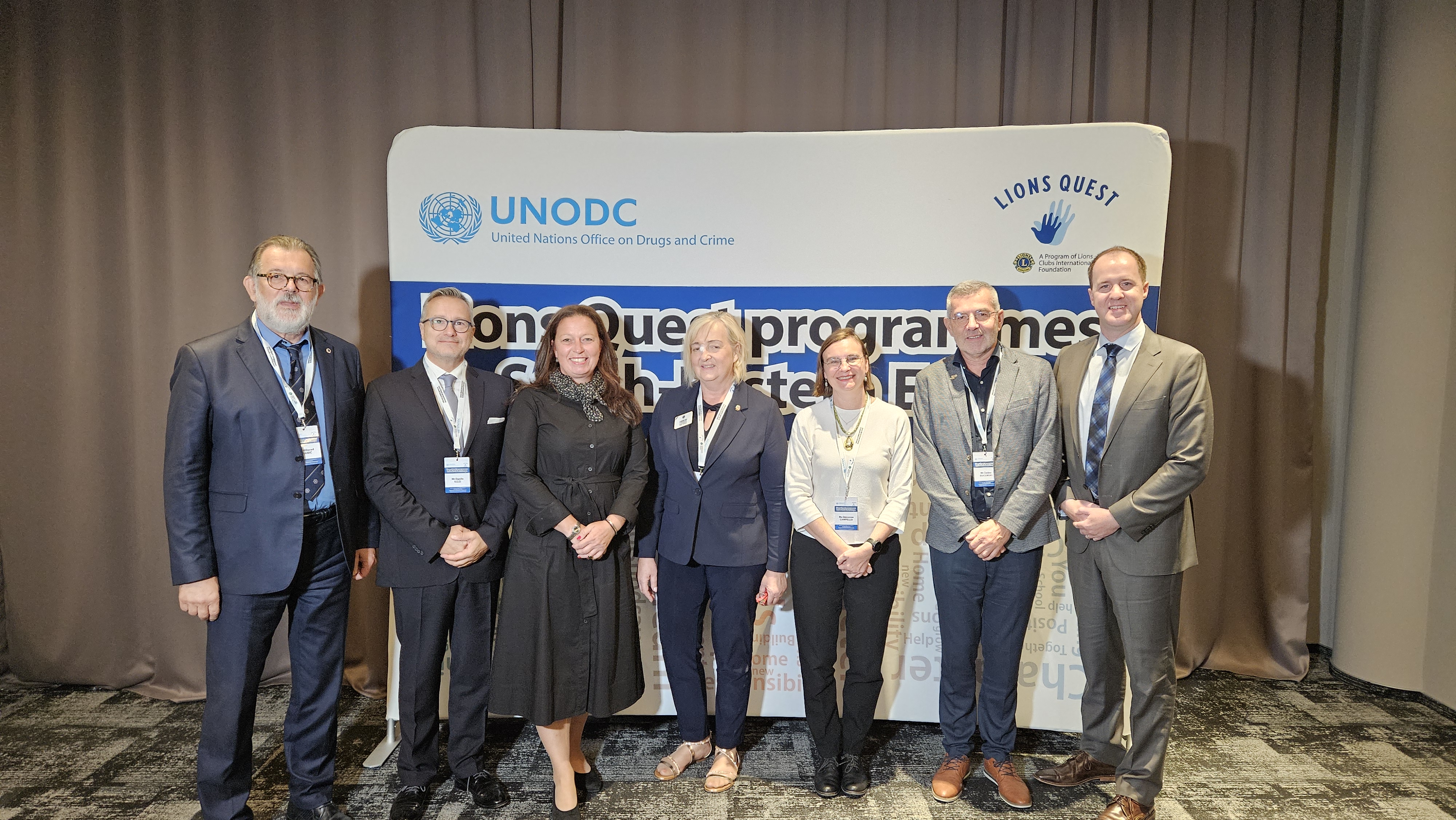Drug Prevention: Regional Meeting Spotlights Ten Years of Successful Delivery in South-Eastern Europe
LJUBLJANA, Slovenia - On September 16 and 17, 2024, the city of Ljubljana hosted the Regional Meeting for South-Eastern Europe, focusing on the delivery and results of the Lions Quest Programmes – Efforts in Systematizing Prevention - implemented by the United Nations Office on Drugs and Crime (UNODC) in close partnership with the Lions Clubs International Foundation (LCIF).
The event was attended by representatives of the Ministries of Education, Health and Institutes of Education of Bosnia and Herzegovina, Croatia, Montenegro, North Macedonia, Serbia, and Slovenia and marked a significant milestone, celebrating a decade of successful partnership between the UNODC and Lions Clubs International Foundation in the realm of drug prevention, particularly addressing national education and health systems through reinforcing social-emotional skills of youth, families and communities.
The Lions Quest Skills for Adolescence Programme in South-Eastern Europe was initiated in 2014 starting with Serbia and gradually expanded to Bosnia and Herzegovina, Montenegro, North Macedonia, Croatia and Slovenia . Over the years it has achieved impressive results: 1,700 teachers have received training, impacting the lives of 27,400 students across 538 schools. This impactful initiative, specifically targets teachers and students 10 to 14 years of age, equipping them with essential capacity to transfer and address the social and emotional skills of the students.
The ceremony saw addresses from representatives of the Government of Slovenia, UNODC, LCIF and contributions from students and teachers of schools in Ljubljana who have been involved in the programme in the last two school years.

HE Ms Janja Zupančič, State Secretary, Ministry of Education of Slovenia, and Ms Vesna Marinko, Director-General of the Public Health Directorate, Ministry of Health of Slovenia, expressed their appreciation and commitment to the continuation of the programme. They highlighted the tangible results of the programme and their support in further expanding the initiative in Slovenia. Mr Danilo Rizzi, UNODC Regional Representative for South-Eastern Europe, highlighted the remarkable program's quantitative and qualitative impacts, revealing that the partnership had successfully trained teachers and students in hundreds of schools. He also emphasized that the LCIF-UNODC partnership is a long-term alliance which will continue to benefit our youth and communities with long-term impacts. Mr Rizzi emphasized the program's alignment with the 2024 World Drug Day theme, “The evidence is clear: invest in prevention,” underscoring the importance of proactive strategies in shaping a brighter future for youth. He closed his opening remarks by sharing UNODC’s concerns about the increasing threat posed by illicit trafficking and the use of synthetic opioids like fentanyl at the global level.
Ms Lorena Hus, International Director, Lions Clubs International, expressed her appreciation for the partnership between Lions and UNODC addressing the needs of youth, communities and societies in the region. Mr Matthew Kiefer, Global Programme Coordinator, LCIF, highlighted the value of the partnership with UNODC and the high-quality implementation and impacts of the programme, unanimously recognized by all beneficiary countries.
Ms Giovanna Campello, Chief of the Prevention, Treatment, and Rehabilitation Section of UNODC, underlined that through empowering youth with essential life skills, we build together a more resilient and promising future for the people of the region.
Students and teachers involved in the program highlighted the positive effects to make them “better persons” and “more resilient” to drugs in particular.
The regional meeting continued with the discussion of achievements and plans at the national and regional levels. Every delegation could share their experiences and also interact with Lions and UNODC participants. Some delegations highlighted that the programme had positive impacts also in the reduction of violent behaviours as well as increasing school retention with a decrease of compartmental and behavioural anomalies among students. Bottom of Form
The LCIF-UNODC programme is planned to continue and further expand within the framework of the UNODC Regional Programme for South-Eastern Europe 2024-2029.
